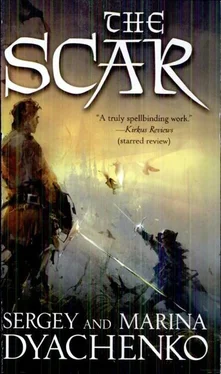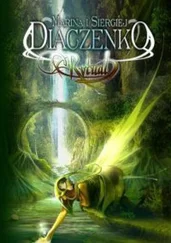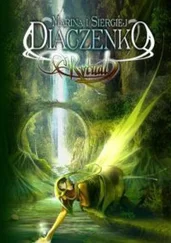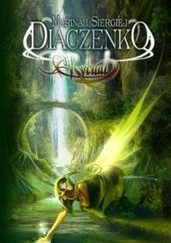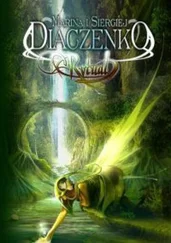“Wine!” he yelled out to the landlady.
In the course of the next two hours, Egert Soll made the most important discovery of his life: Alcohol, if drunk in sufficient quantities, can suppress both spiritual unrest and fear.
Toward dusk, the crowd of guards, fairly thinned out by this time, spilled out onto the streets and stumbled away from the Faithful Shield. Egert hollered and laughed no less than the others. From time to time he caught the alert glances of Karver from the corner of his eye, but the inebriated Egert no longer cared: he was enjoying the long-awaited awareness, however false, of his own strength, freedom, and daring.
All the townsfolk who came across this gloriously drunken company shrank back toward the curbs, not at all desirous of crossing paths with the gentlemen of the guards. On the embankment, a lamplighter was kindling the streetlights: the revelers nearly knocked his ladder out from under him. Egert roared with laughter. The streetlamps danced in front of his eyes; they circled in a waltz, bowing and curtseying. The thick air of late spring was full of smells, and Egert gathered them in with his nose and mouth, experiencing with every swallow the fragrance of the sun-warmed river, the freshness of grass, wet stone, pitch, someone’s perfume, and even warm manure. Embracing Karver with his left arm and, one by one, all the other guards with his right, he unquestioningly accepted that his illness had left him, and that like any cured invalid, he had the right to an especially intense joy for life.
Opposite the entrance to the Faithful Shield, not far from the place where the student and his fiancée, Toria, had first alighted from their carriage, there was a puddle standing in a pothole. The puddle was as deep as regret and as greasy as a feast day broth. Neither the wind nor the sun had dried up this puddle; though it had shrunk slightly, it had preserved itself from the early spring until the very threshold of summer, and it could be expected that such unusual persistence would help it remain there until the fall.
The puddle caught the fading, evening sky on its black, oily surface. A drunken tailor wobbled on its edge.
That this man was indeed a tailor was clear from the very first glance: a well-thumbed measuring tape was draped around his slender neck in a loose knot, and he was wearing a large canvas apron smeared with chalk. His flaxen hair was mussed into two tufts that sprang up behind his ears. Too young to be a master, the apprentice tailor peered at the puddle and hiccuped quietly.
Karver laughed out loud. The others joined in his laughter, but with that the matter should have ended. The apprentice raised his cloudy eyes and said nothing, and the guards, passing to the side of the puddle, walked toward the doors of the tavern.
Of course, just as Egert was walking by the befuddled tailor, the apprentice lost his balance and took a sweeping step forward. His heavy wooden clog crashed down into the very middle of the puddle, raising a violent fountain of fetid muck, a large part of which landed on Lieutenant Egert Soll.
Egert was doused nearly from head to toe; the dirty grime splattered over his coat and his shirt, his neck and his face. Feeling large, cold globs of mud slither down his cheeks, Egert froze on the spot, unable to take his glassy gaze from the soused apprentice.
The guards surrounded the tailor in a dense ring; while they watched Egert warily, they regarded the lad with curiousity and interest. However, the journeyman was far drunker than Lieutenant Soll and thus far more daring: he was not at all afraid of the gentlemen of the guards, though it is possible that he simply did not notice them. With purely scientific interest, he examined his clog, which had disturbed the surface of the puddle and flung mud at Egert.
“Shove him in, the pig,” Dron advised good-naturedly. Young Bonifor darted forward, anticipating the amusement this entertainment would bring.
“May I do it?”
“This is Egert’s man,” Karver commented dispassionately.
Lieutenant Soll grinned fiercely, took a step toward the tailor, and immediately sobered up. Reality descended upon him, grinding down the spring, freedom, and his newborn courage; Egert faltered from the sudden thought that he would once again exhibit his fear. And indeed, as soon as he thought about fear, a dreary weakness burrowed into his belly. All he had to do was simply extend his hand and seize the lad by the collar, but his hand was drenched in sweat and had no intention of complying.
Great Khars, help me!
Shaking all over from the effort, Egert reached out for the scruff of the apprentice. He grasped the collar of the tailor’s jacket with his damp palm, but at that very second the boy roused himself, throwing off Egert’s hand.
The guards were silent. Egert felt rivulets of cold sweat chasing one another down his back.
“What a pity,” he forced out with great difficulty. “He’s just an idiot, a drunk who accidentally…”
The guards exchanged glances. The apprentice, meanwhile, if not wishing to contradict Egert’s words, then simply desiring to continue his scientific inquiry, deliberately raised his wooden clog over the puddle.
The guards sprang back in time; only Egert, who stood as if transfixed, was inundated with the next, even more plentiful helping of greasy mud. The tailor reeled, maintaining his balance with difficulty. Feasting his eyes on the result of his act, gratified, he smiled like a brewer’s horse.
“He’ll kill him,” observed Dron in an undertone. “Damn!”
Egert’s face, ears, and neck burned under the layer of black slurry. Strike! His reason, his experience, and all his common sense insisted on it. Beat him, teach him a lesson, let them pry you off his unresponsive body! What is wrong with you, Egert? This is past endurance, this is the end, the end of everything, kill him!
The guards were silent. The apprentice smiled drunkenly.
Egert fumbled at the hilt of his sword with a wooden hand. Not this! screamed his better judgment. How can you swing your sword at a defenseless man, at a commoner?
… at a defenseless man, at a defenseless man …
The apprentice raised his foot a third time, now looking Egert straight in the eyes. Apparently, he was so drunk that, regardless of the armed guards surrounding him, he was able to recognize only the pleasure he received from this distinct action: the journey of the muck from the puddle to the face and clothes of a certain gentleman.
The apprentice was still raising his foot a third time, but Lieutenant Dron could no longer contain himself. He darted forward with an inarticulate growl and smashed his fist into the tailor’s chin. The astonished apprentice fell backwards without a single sound, and there he remained, stretched out on the ground, sniveling.
Egert took a deep breath. He stood, covered in mud from head to toe, and ten stunned pairs of eyes watched as the mess dripped from the gold braid of his coat.
Dron was the first to break the silence. “You might have killed him, Egert,” Dron said, by way of excuse. “You’re all wound up. He probably should be killed, but not here, not now. He’s beyond drunk, the moron, but you were about to draw on him, a commoner! Egert, can you hear me?”
Egert stood, staring into the puddle just as the apprentice had when they first encountered him. Thank Heaven, Dron had decided that Egert was paralyzed by a fit of rage!
They were pawing at his wet sleeve.
“Egert, are you out of your mind? Dron is right, you shouldn’t kill him. If you kill them all, there would be no craftsmen left, right? Let’s go, Egert, eh?”
Ol and Bonifor were already waiting at the doors to the tavern, impatiently looking back at the others. Someone took Egert by the arm.
Читать дальше
